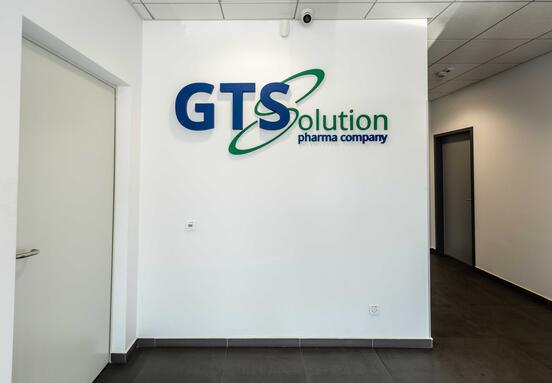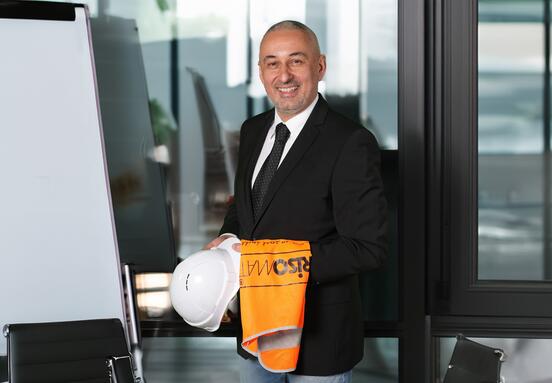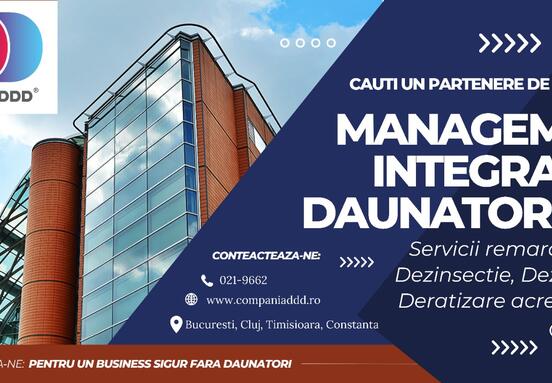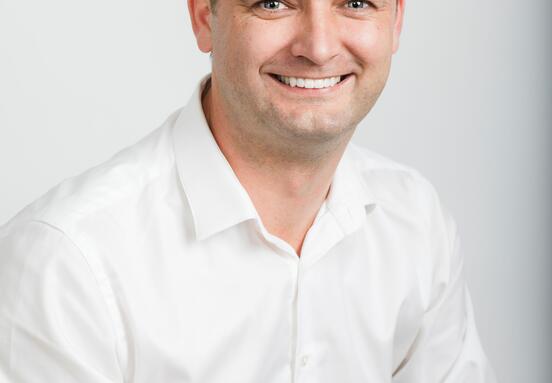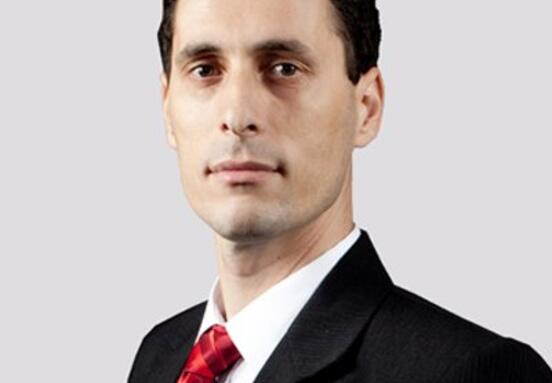Also last year, P3 started the first expansion works for the recently acquired park. With this occasion, Peter Bečár, Managing Director CEE within P3 said:
„The expansion of P3 Bucharest park will allow us to satisfy the demand for large sustainable warehouses on the Romanian market, which registers a constant growth”.
One year after the acquisition of P3 Bucharest, we approached Mr. Peter Bečár, interested in the company’s future plans in Romania.
Warehouseinfo.ro: You chose to start speculative development within P3 Bucharest in October last year. Why do you think the Romanian market is ready for this type of investments?
Peter Bečár: When we started the development last year, we started preparing for different customers generally, because we felt there was demand for it; Carrefour then decided to expand and therefore right now we are preparing two warehouses for them. To start a project it takes a while, we focus on providing Carrefour with what they want, get the site running, it is not an easy project, it’s almost 50,000 sq. m.
In the meantime, we also started to prepare a warehouse of 42,800 sq. m, in order to have space for other customers which are talking to us. There are no specific deals done yet, but we are in discussion with various clients, also some new ones, which I think is great. Therefore I believe we are going to finish the building in the summer and hopefully it’s going to be full. That’s the plan.
You are focusing also on other cities, outside Bucharest, such as Timisoara and Arad. How do you see your development in this area?
Romania is a great country, a big country, 20 million people, so logistics will be changing here as well, retailers are expanding; this is actually an interesting period of time, seeing how it will settle down. In the same time, infrastructure is under development and with all those factors it is not easy for all the companies on the market to decide how to run their businesses here, and therefore it is the right time for us to have a look, talk to them, find out what their expectations are. We are long term investors; we want to create a platform which works for them.
And right now even they are looking for new businesses, so it’s good for us to understand what they are doing as well. This is what will be actually happening this year. Next year, the market will set up the directions, how the market will develop and in which cities. It’s important to have the support of the cities, the support of the government, to have the right people on the sites, the different land owners with different expectations.
All these factors we need to put together to create a new location.
Do you think there are options for the investors on the market, in terms of buying land?
The industrial market is… I would not say a new market, but it’s not that mature, so there are limited options. I had discussions with few consultants on the market about the total stock of A+ in Romania and I’ve heard three-four different answers.
The market is evolving and I believe in the next two years is going to settle down. The stock is limited, so therefore we are focused on development side of the business here and this is actually what customers will need in Romania - new warehousing and new options, this is what we are trying to bring to Romania – quality.
You have an office in Romania since 2010, but P3 became active on the local property market in the end of 2014. What exactly happened that made you act as an investor?
The first three years we were talking with different investors and we provided services for them, which was the ideal set-up for us that time, to better understand the market and create our own platform here. So during those years we prepared for our investment and in 2014 it was the right window for us, when we found out the right opportunity to actually do our investment.
We first opened a small office, I was here for the first time in 2009 together with Ian Worboys, the CEO of P3, we started doing the market research, we had our first employees, we started providing services to other customers as well talking to our customers on our platform, in order to understand what they needed in Romania.
What makes you different from your competitors, usually? Is it a certain business philosophy rather than an asset quality oriented strategy, such as location or certain type of clients?
The customer focus – this is what we always have in mind when we are doing anything in our strategy , it is long-term thinking about the customers, what they will need, whether is the location or services, therefore we provide a lot of services ourselves, trying to be very close to the customers. This is probably... I would not say what differentiates us from our competitors, but this is what we believe is the right strategy for us.
You see it in our claim too: “Warehouses are our passion”. And we really are passionate about warehouses, it’s not just about the box, the technicality, but it’s about what is happening around it: services, customers, what they do, how they do it, how we can help them.
If you are looking at our business, at the end it’s people who are working in the warehouse. And they need everything, the same things as you would need in an office: a grocery store, public transport to get there. It is the same thing, they still need the same services.
Talking about people in warehousing projects and not only... how do you find the labour market in Romania? Rumours and even some studies are speaking about a shortage on workforce in Bucharest and in Romania.
I think for the future there will be a slight competition between the countries in how they attract their investors and workforce is one of the most important, I would say top three, at least.
So if there is something to be done, it should be done. About the shortage we hear the same things, from customers as well, also about the market in the western part of Romania, we heard a lot about that there was a lack of people. It can be a factor to influence how strong the market could grow, so it is a very important thing and journalists have been writing a lot about it in terms of what can be done and how to help people to move in order to find jobs, how to support it through policies. This is also connected with the whole system - the transportation, the housing, if there are enough developers for housing, so people can actually move; because if there are no people, there are no warehouses.
It is the same thing for customers, it is one of the subjects they are looking into when they are doing studies about the places where they would like to have their operations. The first thing they want to know is what kind of labour is there, what is the size of the city, what other services are around the city, how far is from the airport and how to get there, if there is any transportation. But if you don’t have labour, you don’t even start discussing the rest of the things.
And when you find out the labour somewhere and then you realize there is nothing else but labour, you need to deal with other issues then, infrastructure etc. It should be a priority for the Romanian government, how to support the international, but also local investors, cause they need the same thing.
Where do you see P3 in Romania in the next five years, what is the company’s strategy?
Our strategy is to be one of the top leaders as quality services providers of warehousing space in Bucharest and in the rest of Romania as well. This will depend on the market, on how it would develop and if the customers would see need for operations.
We will continue what we started in 2014, we are already now building around 90.000 m2 in P3 Bucharest. There are also 209,000 m2 under construction in logistics locations across Europe and many more ready for development during 2016.
It is already a big proportion of the market which we have available and the question will be how much it will be needed in Romania, in connection with labour, transportation…
The next two years will actually show how the market will develop and how much of the developers’ activity is needed. I see Romania growing, but it still needs to keep in mind that there are specific factors which need to be solved in order to support the further grow.
I spent a lot of time in the last two years here in Romania and travelling around and I was quite happy to see the energy to move ahead, to solve problems, to get new solutions, new things out of the box. This is how I would like to summarize how I’m impressed by people in Romania.
And you can see it also in terms of our customers – what kind of technology they use, how they solve problems and how they grow quickly so it just proves there is a lot of energy which can create a lot of potential business.
I saw you have an accent on green technology in your projects. Do you thing this trend will gain importance in Romania too?
It is already there, because Europe is getting smaller, in terms of distances and people moving. Companies are expanding, there are even companies from Romania expanding to other countries and companies from other countries expanding to Romania; you cannot think that you are isolated, so you need to follow the trends, because if you don’t follow them, then suddenly you’ll be less efficient.
Therefore I think this trend will be all around Europe and Romania can do quite well in this area, because the customers want to be really efficient and many of them are also thinking long term and this is an important drive.




